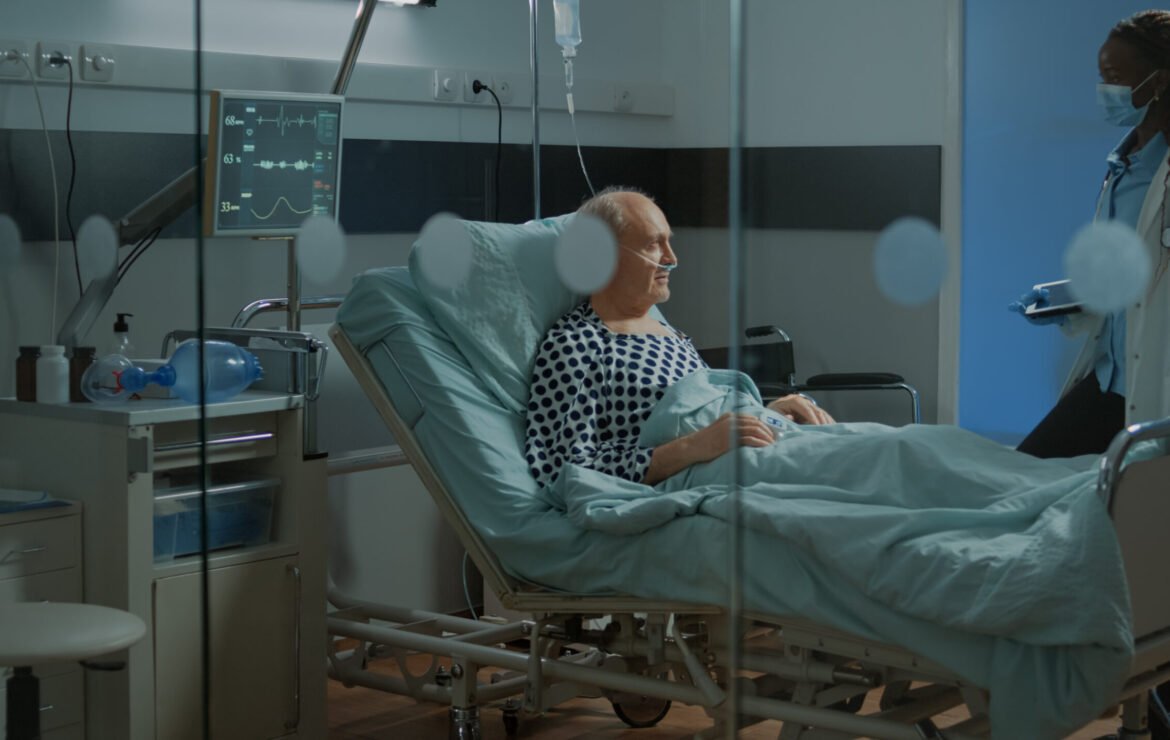ICU at Home – How It Works and What to Expect

Home-based critical care services have become more popular recently. One service is ICU at home, which provides intensive care services to patients who do not need hospital care, are not in a critical phase of the illness, and still require necessary care. However, it is not the case that their recovery is crucial, but they still need to pay very close attention to their situation.
In this article, we will go through the people who can benefit from Intensive care unit at home, how ICU works at home, and what to look for if you or your family member is dealing with critical care at home, comparing it at the same time to the traditional ICU care.
Who Needs ICU at Home?
Home-based ICU care is usually for patients who need more careful medical monitoring and medical care because of severe medical situations or injuries. These individuals are generally the ones who would have been kept in an ICU but can now be taken care of at home by medical staff. Home intensive care gives patients the required medical treatment and a greater sense of comfort and familiarity.
Extended stays in intensive care units increase the risk of developing nosocomial infections that may delay the start of rehabilitation therapies. Giving critical care at home thus offers a safe and effective replacement for ongoing hospitalization for these patients.
How Home ICU Works?
A relatively recent idea is that the Intensive care unit at home gives patients critical care in the comfort of their homes. These are some of the main elements of its operation:
- Every patient’s care plan is customized to address their needs, including physical therapy, nutrition, medications, and other therapies.
- Trained medical professionals, including doctors, nurses, respiratory therapists, and other specialists, are always available around the patient’s condition, offer care and support, and respond to crises.
- Intensive care unit at home relies on communication and collaboration. The medical team works hand in hand with the patient and the patient’s family to ensure that everyone is involved in the patient’s care and is kept in the loop.
- Home ICU require specialty medical equipment. This includes: ventilators, oxygen concentrators, cardiac monitors, and infusion pumps.
What to look for during the ICU at Home
Once the patient has been judged appropriate for home ICU and the required home ICU equipment has been arranged, the patient and their family can expect several things:
- A team of doctors, nurses, and an ICU nurse will give the patient personal attention at home.
- The patient will be in a comfortable and familiar environment with friends and family or familiar possessions.
- Each patient can enhance their emotional well-being by being in a safe environment to reduce their anxiety and dependence.
- During this period, trained medical care providers will closely monitor the patient 24/7.
- Home intensive care will alleviate the need for a unique and expensive hospital room or extraordinary equipment so this represents a cost-effective alternative versus going to the hospital.
- The patient’s primary care physician can still meet regularly to assess their progress and change the plan if needed in treatment.
- Various home care therapies, including physiotherapy, occupational therapy, and speech therapy, are available to assist them in regaining their independence and strength.
How ICU at Home Differs from Conventional Hospital Care
Among the benefits of home ICU care over conventional hospital ICU care are:
- Traditional ICU care exposes patients to several pathogens in a hospital environment. Hence, hospital-acquired infections are a frequent concern.
- Intensive care unit at home lets patients heal in the comfortable environment of their own house, surrounded by family and a familiar environment. Therefore, having stress and anxiety improves recovery since it does.
- Home Intensive Care gives patients continuous care from a team of qualified medical experts. This degree of care is comparable to that provided in a hospital ICU.
- Home Intensive Care is sometimes more affordable than conventional hospital-based ICU treatment. Since it relates to expense reduction on hospital stays, including room food, and other supplementary services.
- More patient autonomy results from Intensive care unit at home, which lets them participate actively in their healing. They have more influence over noise levels, lighting, and temperature in their surroundings.
Conclusion
For patients who need it, ICU at home offers home-based critical care in the comfort of their own homes. It provides a lower risk of infections and better quality of life, among other advantages, over conventional hospital ICU treatment. All things considered, it is an inventive healthcare method that is becoming quite well-known. Visit Home Care by LCH Today to obtain the best home healthcare service.








